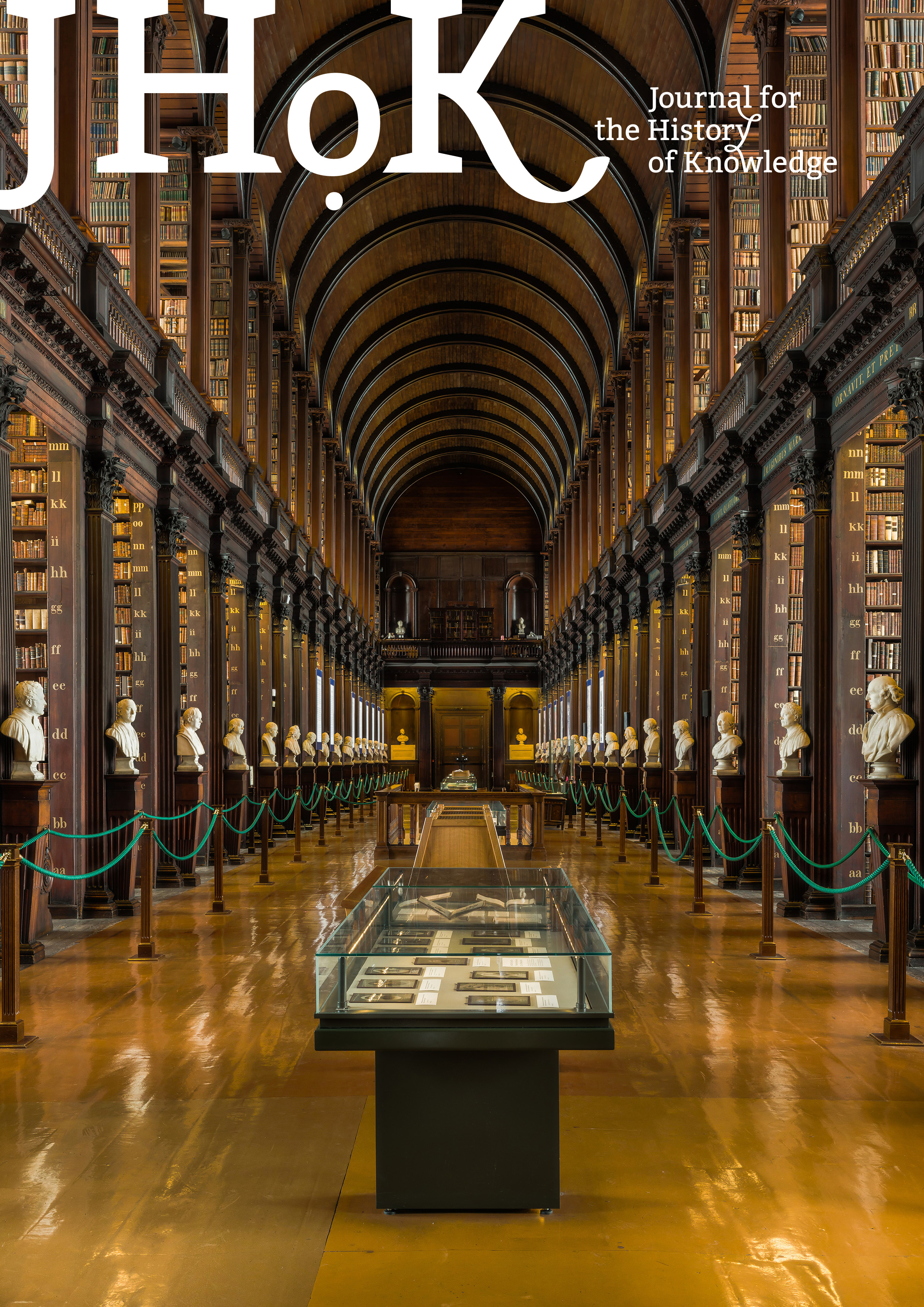Moving Around in Narrowing Circles
How Four Scholars Got Forgotten in Eighteenth-Century Learned Journals
DOI:
https://doi.org/10.5334/jhk.36Keywords:
reference networks, network analysis, co-citation analysis, learned journals, republic of letters, eighteenth-century, forgettingAbstract
This article takes up the production of ignorance in early modern academic information circulation by focusing on the question of how information changes from being present to being absent in the medium of the learned journal—in short, how knowledge becomes forgotten. To examine the processes behind this change, I have selected four exemplary late-seventeenth- to early-eighteenth-century scholars: Johannes Braun (1628–1708), Thomas Gale (1636–1702), Adriaan Reland (1676–1718), and Eusèbe Renaudot (1646–1720), and tracked their reception over the course of the eighteenth century, as indicated by patterns of references to them in learned journals. To this end, I chose four exemplary eighteenth-century learned journals, the [Nova] Acta Eruditorum, the Journal des Savants, the Maandelyke Uittreksels, of Boekzaal der geleerde waerelt, and the Philosophical Transactions, and searched digitally for all references to the four scholars between 1 January 1701 and 31 December 1800. Each journal page bearing at least one reference to one of these scholars is treated as a textual unit for the extraction of co-citation data. These co-citation data were then used as material for a diachronic network analysis of the reference patterns. The results show that the frequency of references made to all four scholars began to decline demonstrably in the middle of the eighteenth century and that by the last quarter they had become forgotten, that is, effectively “ignored.” These processes turn out to be context-sensitive and not determined by the quality of the contributions of those who became forgotten.
This article is part of a special issue entitled “Histories of Ignorance,” edited by Lukas M. Verburgt and Peter Burke.



